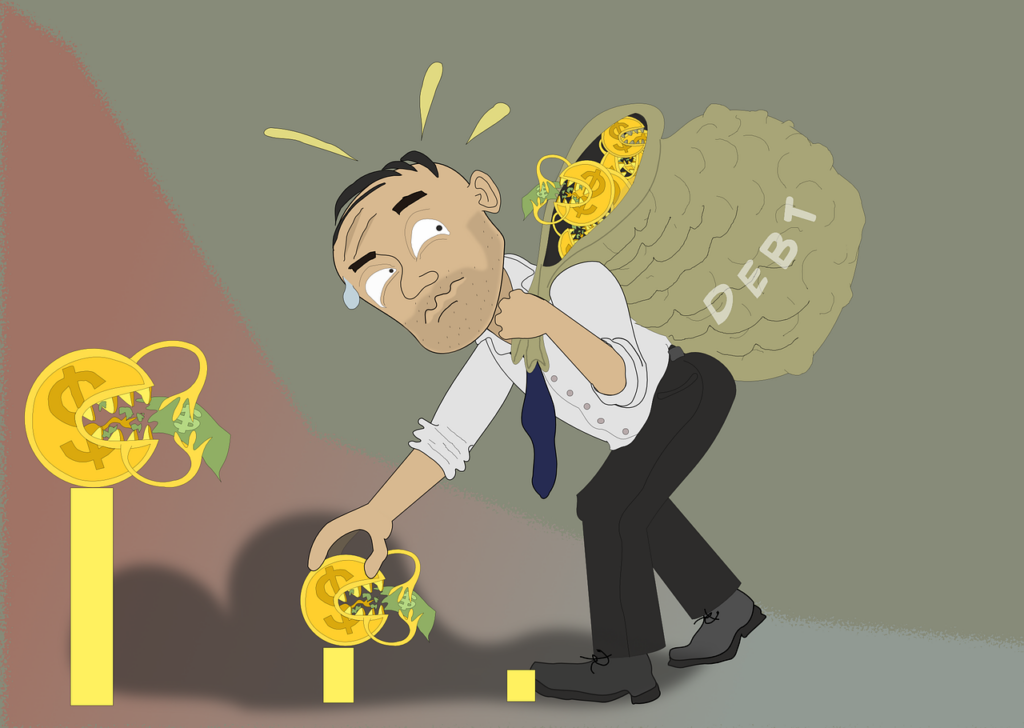The Role of a Credit Counselor: What They Can and Can’t Do
As the cost of living continues to rise and inflation weighs heavily on household budgets, many consumers find themselves grappling with mounting debt. In such challenging economic times, the role of a credit counselor has become more crucial than ever. This article delves into what credit counselors can and cannot do, with a specific focus on how their services may impact your credit score in both the short and long term.
Love our content? Show your support by following us — pretty please!🥺
FOLLOW ON PINTEREST
Hi! I’m Kate, the face behind KateFi.com—a blog all about making life easier and more affordable.
Given the rising household debt—reported to be over $16 trillion in the United States—it’s essential for consumers to understand their options and seek help when necessary. So, if you’re feeling overwhelmed by your debt, consider reaching out for a free consultation to explore the best paths forward.
✅ See If You Qualify for Debt Relief
Understanding Credit Counseling: What’s Involved?
Lower Your Unsecured Debt
If you have $5,000+ in credit card or personal loan debt, a free consult can review options like settlement or hardship plans.
- One-on-one call to review your debts and goals
- See potential monthly payment reductions
- No obligation to enroll
Not available in IL, KS, OR, TN, UT, WV.
Credit counseling typically involves a thorough review of your financial situation by a trained professional. The primary goal is to help you understand your options for managing debt and improving your financial health. Here’s a brief rundown of what you can expect during a credit counseling session:
- Debt Assessment: The counselor will analyze your total debt, income, expenses, and overall financial health.
- Budgeting Advice: You’ll receive guidance on creating a sustainable budget to help manage your finances effectively.
- Debt Relief Options: Counselors will discuss various debt relief options, including debt management plans (DMPs), negotiation with creditors, and educational resources.
However, it’s vital to keep in mind that credit counselors cannot magically erase your debts. They provide information and assistance but ultimately, the responsibility lies with you to act upon their recommendations.
What Credit Counselors Can Do
Understanding what credit counselors can actually offer is essential to making informed decisions. Here’s a breakdown of their capabilities:
- Personalized Financial Assessment
Credit counselors take the time to evaluate your specific financial situation. They can help you create a personalized action plan based on your income, expenses, and debts.
- Create a Debt Management Plan (DMP)
A DMP is a structured repayment plan that consolidates your debts into one monthly payment, often at reduced interest rates. Credit counselors can negotiate with creditors on your behalf to potentially lower payments and fees.
- Educate on Financial Literacy
Counselors offer invaluable resources and information about budgeting, saving, and debt management to empower you in the future.
- Provide Emotional Support
Dealing with debt can be emotionally taxing. Credit counselors are trained to provide support and encouragement, helping you stay motivated to follow through with your financial goals.
- Negotiate with Creditors
While results vary, many credit counselors have the skills to negotiate with creditors for lower interest rates, waived fees, or other concessions.
What Credit Counselors Can’t Do
👉 Start Your Free Debt Relief Review
Not available in IL, KS, OR, TN, UT, WV.
While credit counselors offer valuable services, it’s equally important to be aware of their limitations. Here’s what they cannot do:
- Erase Debts
Counselors cannot eliminate debts outright. They can provide you with strategies to manage and repay them, but the responsibility ultimately falls on you.
- Guarantee Credit Score Improvement
While following a DMP may help improve your credit score over time, counselors cannot guarantee results. Each individual’s situation is unique, and various factors influence credit scores.
- Manage All Types of Debt
Some types of debt, like tax liabilities or student loans, may require different approaches that a credit counselor may not handle.
- Guarantee Acceptance into Programs
Counselors can provide recommendations for debt relief programs, but acceptance is subject to creditor approval and varies based on individual circumstances.
The Credit Score Impact: Short-term vs Long-term Trade-offs
Understanding the impact of credit counseling on your credit score is crucial when making decisions about debt relief.
Short-term Impact
Entering a DMP or working with a credit counselor may lead to initial negative impacts on your credit score. If you are currently missing payments or are already in default, you may experience a decrease in your score regardless of whether you seek help. However, the benefits of being on a structured payment plan may soon outweigh these initial setbacks.
Long-term Impact
If you successfully complete a DMP and reduce your overall debt, you could see improvements in your credit score over time. Consistently making payments on time is a key factor that positively affects your credit score.
Practical Checklist for Your Credit Counseling Session
Understand pros/cons of settlement vs consolidation vs DMP for your exact mix of debts.
Not available in IL, KS, OR, TN, UT, WV.
To maximize your credit counseling session, consider gathering the following documents:
- Income Statements: Recent pay stubs, tax returns, or any additional income documentation.
- Debt Information: Credit card statements, loan agreements, and any other relevant debt documents.
- Monthly Expenses: A list of your regular monthly expenses, including rent/mortgage, utilities, and groceries.
- Credit Reports: Obtain copies of your credit report to help the counselor assess your situation more accurately.
By providing detailed and accurate information, you can expedite the process and receive the most relevant advice tailored to your circumstances.
Final Thoughts: Moving Forward with Confidence
Credit counseling can be a beneficial step in your journey toward financial stability. While counselors can offer guidance and support, remember that the ultimate responsibility lies with you. Taking proactive steps to manage your debts will require effort and commitment, but the long-term benefits of a healthier financial future are well worth it.
If you’re unsure where to begin, consider getting a free consultation with a debt relief specialist. This can provide you with valuable insights into your options and set you on the path to becoming debt-free.
✅ See If You Qualify for Debt Relief
Important: This content is for education only—not legal, tax, or financial advice. Results and eligible programs vary by situation and state. Fees apply if you enroll and complete a program. Debt relief can affect credit; missed payments may lead to collections/lawsuits. Not available in IL, KS, OR, TN, UT, WV.
In a time of uncertainty, taking charge of your financial health is not just beneficial; it’s essential. Empower yourself today by seeking the right help and setting a course for a brighter financial future.






















